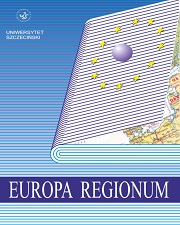Wpływ rozporządzenia Parlamentu Europejskiego i Rady (UE) w sprawie opłat interchange w odniesieniu do transakcji płatniczych realizowanych w oparciu o kartę na rynek usług płatniczych. Wybrane zagadnienia
The impact of the Regulation (EU) on interchange fees for card-based payment transactions. Selected issues
Author(s): Jan ByrskiSubject(s): Supranational / Global Economy, Law on Economics, Financial Markets, EU-Legislation
Published by: Wydawnictwo Naukowe Uniwersytetu Szczecińskiego
Keywords: Interchange fee; interchange fee regulation; interchange fee cap;
Summary/Abstract: The Regulation of the European Parliament and of the Council (EU) on interchange fees for card payment transactions is the first key piece of Union legislation regulating the issue of payment services. It specifies uniform technical and commercial requirements for card-based payment transactions within the EU. The regulation, contrary to its name, regulates a wide range of issues related to the operation of card-based payment services, not only the issue and amount of the interchange fee. It introduces regulations on the content of agreements between card market participants as well as regulations influencing the rules of cooperation between them. The payment service provider is the addressee for the application of the maximum interchange fee for debit and credit transactions. Suppliers can not offer or request an interchange fee greater than 0.2% of transaction value for debit card transactions and 0.3% for credit card transactions. The definition of maximum interchange fees has had a positive impact on the payment services market. The increase in the acceptance network and the volume of card-based payment instruments are examples of the fact that this regulation has led to the development of non-cash trading, which is per se a positive value for the economy as a whole.
Journal: Europa Regionum
- Issue Year: 2016
- Issue No: 29
- Page Range: 153-167
- Page Count: 15
- Language: Polish

